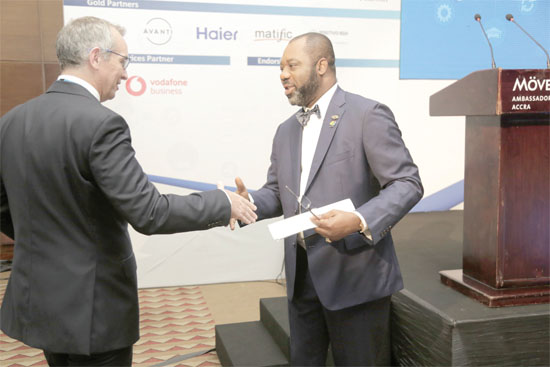
African Ministerial Forum on Innovation underway
More than 250 ministers and other government officials from across Africa are in Accra to participate in this year’s Africa Ministerial Forum on Innovation.
Dubbed: ‘Innovation African 2019’, the three-day programme will serve as a platform for industry players to have pre-scheduled meetings and committed engagements with senior government officials and ministers of Education, Information and Communications Technology (ICT) and Science and Technology experts.
The forum, the ninth in the series, is being led by the Ministry of Education and co-hosted by the Ministry of Communications.
Progress
At the opening ceremony in Accra yesterday, the Minister of Education, Dr Matthew Opoku Prempeh, outlined the significant progress made by the country in education, including skills training.
He said the educational sector faced challenges, such as unpaid capitation grants, lack of textbooks and school uniforms, among others.
There was also the issue of poor performance by both teachers and students at all levels of education, he said.
“Teacher absenteeism rate stood at 30 per cent, while 45 per cent of all candidates failed in Mathematics in 2015. Also, only two per cent of Primary Two pupils were found to be proficient in reading in 2013 and 2015, per Early Grade Reading Assessment (EGRA),” he added.
To resolve those challenges, the minister said, the government had to review the pre-tertiary curriculum which the Ghana Education Service (GES) rolled out in September this year.
According to him, 152,000 teachers were trained and supplied with teachers’ resource packs to deliver the new curriculum.
Dr Opoku Prempeh also said the National Inspectorate Board (NIB) had been strengthened, leading to a reduction in teacher absenteeism from 30 per cent to nine per cent, while the free senior high school (SHS) policy had seen the enrolment of students increase by 43 per cent, from 881,600 in 2016 to 1,264,071 in 2019.
To accommodate the extra numbers, he said, 804 classrooms and dormitory blocks were being built across the country.
“Ghana will continue to invest in the education of our children to make them competitive, skilled global citizens and also equip them with the right skills to secure this country’s future. That is a legacy we are determined to bequeath the next generation,” the minister added.
Investment
Dr Opoku Prempeh said Ghana had pledged $2 million to the African Education Fund, aimed at facilitating the standardisation and accreditation of Innovation and Technical and Vocational Education and Training (TVET) centres across the continent.
He also said the government was implementing a Ghana Accountability for Learning Outcomes Project (GALOP) to improve the quality of low performing basic education schools, targeting 10,000 most disadvantaged schools, based on examination performance.
“The total project funding amounts to $174 million, of which $150 million is from the World Bank’s International Development Association and $23.9m a GPE grant,” he added.
He expressed the hope that discussions and contributions at the forum would help address the many problems faced in the educational sector across Africa.
